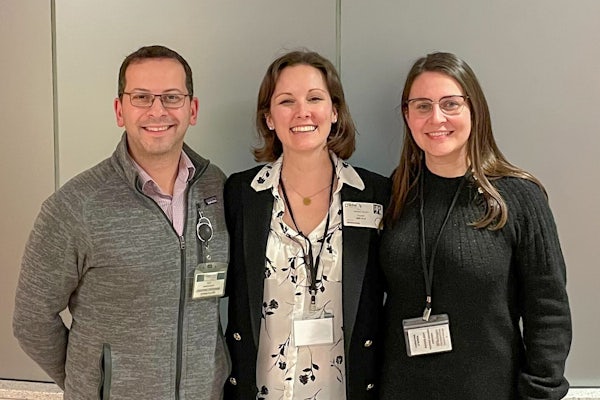O’Brien team advances in NIH maternal health challenge
The team received $320,000 in the technology assessment phase

Christine O’Brien, assistant professor of biomedical engineering in the McKelvey School of Engineering at Washington University in St. Louis, and her team, including Leo Shmuylovich, MD, PhD, assistant professor of dermatology in the School of Medicine at Washington University in St. Louis, and Kelsey Mayo, CEO of Armor Medical Inc., have received a $320,000 prize in the third phase of the National Institutes of Health’s Rapid Acceleration of Diagnostics Technology (RADx Tech) for Maternal Health Challenge.
The challenge that will ultimately award $8 million in total prizes to inventors who are developing home-based and point-of-care maternal health diagnostic devices, wearables or other technologies designed to reduce maternal complications and death in those who live where maternity care is limited. The program seeks technologies intended to be used by the postpartum individual, caregivers or health care providers for the first year after giving birth. In this third step in the challenge, the technology assessment phase, 10 teams were selected to move forward through the testing and verification process.
“Being selected as a winner will allow us to build and test manufactured prototypes of our device, bringing us closer to something that could be deployed clinically,” O’Brien said. “Our goals for the next phase are to demonstrate that our technology has what it takes to successfully be on the market in two to four years, an ambitious but reachable goal.”
O’Brien and her team have co-founded a startup company, Armor Medical Inc., to further develop and commercialize the device. The university’s Office of Technology Management has applied for a patent on the technology.
The team has developed a light-based, wrist-worn device designed to monitor and detect severe bleeding, or hemorrhage, after giving birth, which can happen in minutes, hours or days after birth. Postpartum hemorrhage is the leading cause of preventable maternal death worldwide and accounts for about 10% of preventable maternal deaths in the United States.
With support from the Eunice Kennedy Shriver National Institute of Child Health & Human Development of the National Institutes of Health, O’Brien develops translational optical technologies that can improve women's health care. Her lab develops optical tools that tackle important challenges spanning maternal health, reproductive cancers and women's global health, using optical spectroscopy, optical imaging and simulation techniques that can be translated to impact patient care.




